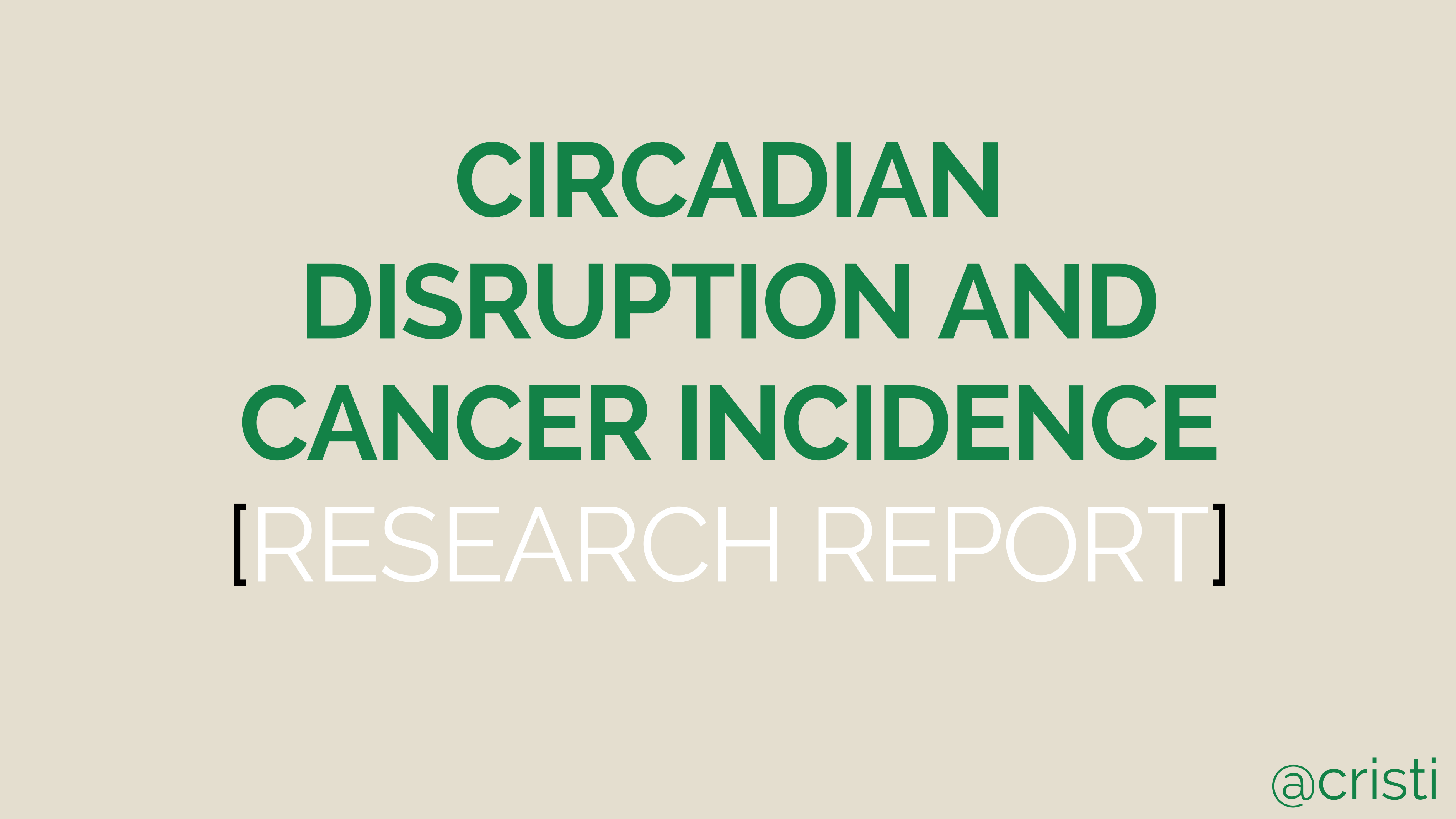Timezone and Cancer Risk in the US - [Research Report]

Researchers at the National Cancer Institute examined associations between timezone and incidence rates for cancers. They used the data from SEER Program (2000 - 2012), which includes 4 million diagnoses of cancers in white residents in 11 US states, in a total of 607 counties.
Caporaso and colleagues (2017) started from the argument that circadian disruption is a potential carcinogen. Circadian rhythms are daily cycles of biological functions; for example, humans with normal/un-disrupted circadian rhythms have higher cortisol upon waking, men have higher testosterone levels between 6 to 10 AM, insulin sensitivity may be higher in the morning, melatonin production increases in the evening before sleep in the absence of light, etc; similarly, others hormones and processes in the human body work according to these daily cycles.
Circadian rhythms are primarily regulated/synchronized/entrained by light exposure. Thus, disruption in these cycles may negatively impact physiology and can lead to pathology. As per Caporaso et al. (2017):
"Disturbances of circadian rhythm may produce health consequences including metabolic syndrome, psychiatric conditions and cancer. Circadian rhythms are disrupted by night light exposure or night shift work, but a degree of disruption may also occur due to misalignment between environmental/social time and internal circadian timing, termed ‘social jet lag’, defined as the change of sleep/wake timing individuals experience between days when they have a free choice and those days when their sleep/wake timing is determined by school or work schedules." [source]
Now, to understand this research: from the east to the west part of a timezone, social time is the same, while solar time is delayed, which leads to discrepancies between people's social and biological time; people living in western timezones may experience a higher degree of circadian disruption, hence, they may be at higher risk for developing cancers.
To regularize their analysis, they adjusted for age and different county-level covariates; and they found that:
"In 607 counties of the continental United States, involving more than 4 million cancer diagnoses among whites, we found that residents in the western regions of timezones had increased rates of overall cancer and many specific cancers, in accord with the circadian disruption hypothesis." [source]
Their analysis validates previous findings from studies in animal models, studies of shift workers, as well as mechanistic studies that point out that circadian rhythm disruptions have broad biological consequences:
"Mechanistically, many non-hormone related pathways involved in carcinogenesis are under circadian control, such as cell
proliferation, DNA repair, apoptosis, and immune response." [source]
They mention the strong points of their analysis, but they are also careful to highlight the limitations, which include:
"Although we adjusted for many of these community level factors, given the limitations of ecological studies, study of individual-level subjects is needed to confirm these findings." [source]
Until further investigations are conducted, they bring to attention the following:
"Measures to reduce social jetlag such as improved sleep hygiene (reducing light at night, earlier bedtimes) and promoting later and more flexible school and work schedules have been advocated by the United States Centers for Disease Control and
Prevention and are reasonable steps." [source]
If you are interested in the exact materials and methods, as well as particular graphs, figures, and details of this research, here's the link:
To stay in touch with me, follow @cristi
Cristi Vlad, Self-Experimenter and Author
So my take away from this is to go to bed early and wake with the sun for better health. And arrange one's life and work so one can do so.
yeah, I guess that's a good take-home message.
I don't have the typical 9-to-5 schedule like most of the cubicle workers I know. I also don't have the grey hair, wrinkles and obvious stress signs on my face that they do.
I think they're just getting "burned out" with their schedule. I have structured my life so that I never need an alarm to wake up in the morning. You'd think this would be a trivial thing, but it really makes a big difference.
Part of the stress they experience is just having something "scare" them awake in the morning. Then the usual groggy stumbling to get coffee (stimulant) that they can't survive the morning without, then the horrible commute, etc..
Western working life is designed to wring every bit of energy out of you. Fight back by reducing the amount you have to contribute. If you can, you will see immediate benefits.